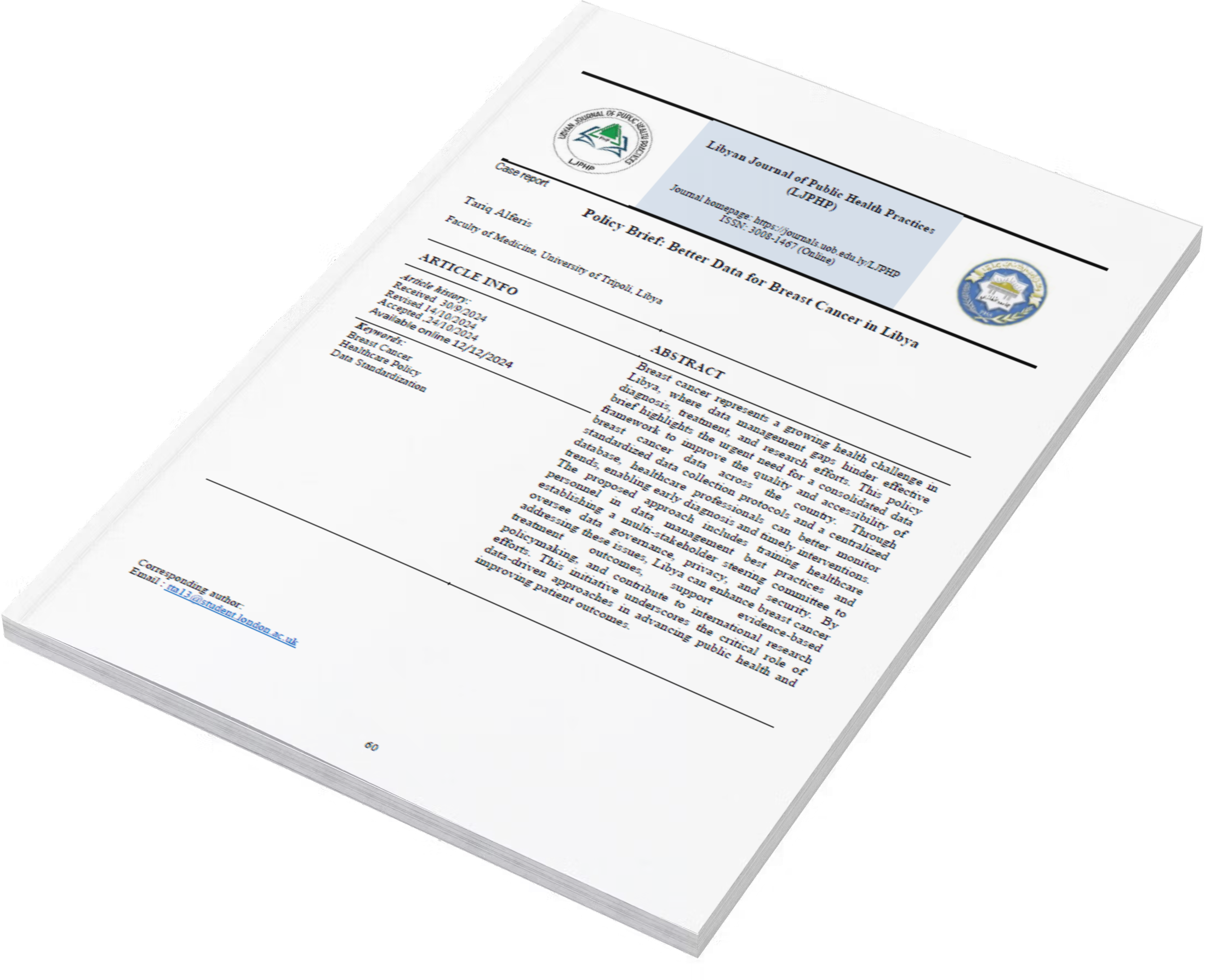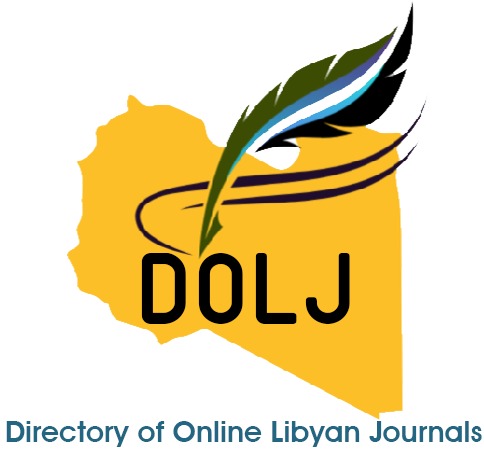Policy Brief: Better Data for Breast Cancer in Libya
DOI:
https://doi.org/10.37376/ljphp.v1i2.7085Keywords:
Breast Cancer, Healthcare Policy, Data StandardizationAbstract
Breast cancer represents a growing health challenge in Libya, where data management gaps hinder effective diagnosis, treatment, and research efforts. This policy brief highlights the urgent need for a consolidated data framework to improve the quality and accessibility of breast cancer data across the country. Through standardized data collection protocols and a centralized database, healthcare professionals can better monitor trends, enabling early diagnosis and timely interventions. The proposed approach includes training healthcare personnel in data management best practices and establishing a multi-stakeholder steering committee to oversee data governance, privacy, and security. By addressing these issues, Libya can enhance breast cancer treatment outcomes, support evidence-based policymaking, and contribute to international research efforts. This initiative underscores the critical role of data-driven approaches in advancing public health and improving patient outcomes.
References
Ismail F, El-Garawani I, Abdelsameea E. Cancer incidence in Tobruk area, eastern Libya: First results from Tobruk medical center. Epidemiol Health. 2021;2(1) . doi:10.4178/epih.e2021050
Kwok CS, Muntean EA, Mallen CD, Borovac JA. Data collection theory in healthcare research: The minimum dataset in quantitative studies. Clin Pract. 2022;12(6):832-844. doi:10.3390/clinpract12060088esults from Tobruk medical center. Epidemiol Health. 2021;2(1) . doi:10.4178/epih.e2021050
Ermiah E, Abdalla F, Buhmeida A, et al. Diagnosis delay in Libyan female breast cancer. BMC Research Notes. 2012;5(1):452. doi:10.1186/1756-0500-5-452
- Ngusie HS, Shiferaw AM, Bogale AD, Ahmed MH. Health data management practice and associated factors among health professionals working at public health facilities in resource-limited settings. Adv Med Educ Pract. 2021;12(2):855-862. doi:10.2147/amep.s320769
- Amshahar HA, Muftah SA, Salem KM. Breast cancer histology and hormonal status characterization in Libyan patients; a sample from the middle region. Sirte Journal of Medical Sciences 2022;1(2):9-15. doi:10.37375/sjms.v1i2.320
- Hussein R, Griffin AC, Pichon A, Oldenburg J. A guiding framework for creating a comprehensive strategy for mHealth data sharing, privacy, and governance in low- and middle-income countries (LMICs). J Am Med Inform Assoc. 2022;30(4):787-794. doi:10.1093/jamia/ocac198
- Karbaj MMO, Anbaiwa RS, Esehaim MHL. Electronic archiving and the extent of its application in the municipality of Kufra, Libya: A case study in monitoring health services and its affiliated clinics. J Comput Sci Technol Stud. 2023;5(1):24-37. doi:10.32996/jcsts.2022.5.1.4
- Engle RL, Mohr DC, Holmes SK, et al. Evidence-based practice and patient-centered care: Doing both well. Health Care Management Review. 2021;46(3):174-184. https://www.ncbi.nlm.nih.gov/pmc/articles/PMC8162222/
- Manley K, Martin A, Jackson C, Wright T. A realist synthesis of effective continuing professional development (CPD): A case study of healthcare practitioners’ CPD. Nurse Educ Today. 2018;69(1):134-141. doi:10.1016/j.nedt.2018.07.010

Downloads
Published
How to Cite
Issue
Section
License
Copyright (c) 2024 Libyan Journal of Public Health Practices

This work is licensed under a Creative Commons Attribution-NonCommercial-NoDerivatives 4.0 International License.











